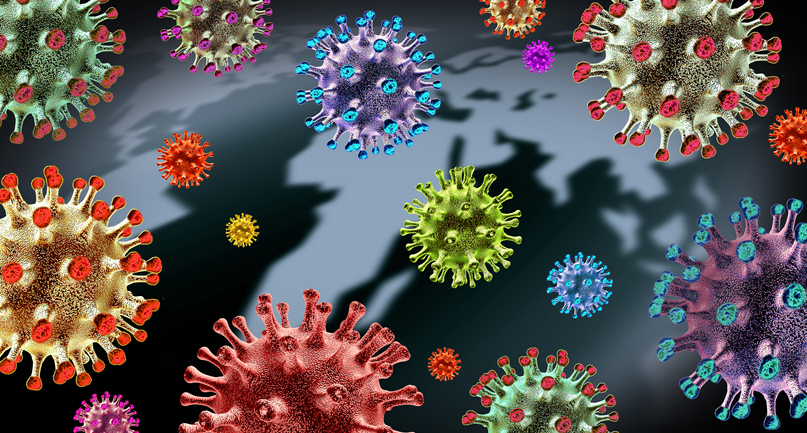Living with Chronic Pain
Facts About COVID-19 Variants

As a virus spreads, its genetic material often mutates, causing different variants of the virus. Variants of the SARS-CoV-2 virus that causes COVID-19 began to appear in September 2020. There are numerous variants of the virus: some emerge and disappear, and some persist and spread. According to the Centers for Disease Control and Prevention, variants of concern in the United States (as of August 6, 2021) include Alpha, Beta, Delta and Gamma. The Alpha variant was first identified in England, followed by the Beta variant, which was first identified in South Africa. The Gamma variant first appeared in Japan and Brazil. The Delta variant, which first appeared in India, is quickly becoming the dominant variant of the SARS-CoV-2 virus.
Six facts about SARS-CoV-2 variants include the following:
- New variants of the coronavirus are detected every week. Most come and go or disappear over time.
- Some variants spread more easily from person to person or cause more severe illness. For example, the Delta variant spreads almost twice as easily as other variants, and the Alpha and Delta variants cause more severe symptoms than other variants.
- COVID-19 tests can detect all current variants of the virus. However, testing does not provide an individual with specific information about which variant is responsible for their infection.
- COVID-19 vaccines provide protection against all current variants, including Delta. However, breakthrough infections can occur. When they do occur, the vaccine still helps prevent hospitalization or death from COVID-19.
- To help prevent the spread of variants, all individuals — both vaccinated and unvaccinated — should continue to wear masks, frequently wash their hands, and practice social distancing as recommended by local and federal guidelines.
- The current COVID-19 vaccines are effective against known variants. However, if a major mutation develops that the vaccines do not cover, they can be modified in response to the mutation.
Ultimately, vaccination, mask-wearing, hand-washing, and physical distancing help prevent the spread of the SARS-CoV-2 virus, which gives it fewer opportunities to mutate into new variants.



















